Impressions From a Curious American in Slovakia
By Massimo Guglietta
Since coming to Slovakia, I have learned so much about the country that I am living in by talking to the locals than I have from visiting anywhere else in the world. It is as if every Slovak I meet is a walking history text book, filled with knowledge of their country’s past. One of the reasons Slovakia interested me was because of its political past. This country has experienced almost every type of government possible including a monarchy during the Austro-Hungarian Empire, a republic with the formation Czechoslovakia, socialism under Nazi occupation, communism behind the Iron Curtain and now a democracy finally as the Slovak Republic. It’s amazing to think that all of that happened within a little more than 100 years. However, despite their complex political history, most people immediately think of the communist era when referencing this part of the world. Since living here, I have learned that is extremely hard to wrap my head around what exactly happened here, and I am not sure if I ever will.
From the outside looking in, it is easy for Americans to say that Slovakia was once a communist country over run with bad ideas and a form of government not suitable for progress. It is easy for people who have never experienced communism to say that it is an evil that should never happen. As Americans, its comfortable for us to believe the narrative that the USA liberated half of Europe from the Nazis, which became the “West” and that the Soviet Union liberated the east which became the Soviet Bloc and took total control. However, there is so much more to the story, to history, that is cut out by blanket narratives of good versus evil. As humans, we always want to simplify things in order to gain a better perspective, but in reality, communism here in Slovakia and the rest of the former Iron Curtain countries was not so cut and dry.
By meeting with people and hearing their own ideas of what communism meant for Slovakia, it is hard for me to believe that simple narrative of good versus evil in terms of the liberation following WWII. In 1946, the parliamentary elections of Czechoslovakia resulted in a communist majority. They were one of the only countries to actually democratically vote communists into their government, however, as usual, the politicians gained public trust through lies. Two years later, with the support of the Soviet Union, the communists “won” 89.2% of the vote, securing complete control. But how can the Czechoslovakians be blamed? It wasn’t democracy that saved them from the wrath of the Nazis, it wasn’t Americans, it was Russians and communism. The choice was clear for the voters of 1946; vote in the form of government that liberated the country. Although I am also over simplifying history, this fact is extremely overlooked.

Just because a government turns evil does not mean that the people oppressed by that government are evil as well. Most of the Slovaks during this time period were simply were simply living their lives. These are normal, beautiful people that have suffered from the evil actions of a few greedy, corrupt politicians of the communist party. We tend to label people and their personalities based on their governments and its actions. The people that fell victim to communist oppression are not to be blamed or be judged because everything was virtually out of their control. All they could do was try to make the most of a terrible situation, and I believe they did.
Although the Slovaks were oppressed by this form of government, many of the ordinary citizens kept their warm-hearted attitudes and values. Like mentioned before, Slovaks under communism were just living their lives. Slovaks were forced to join the army and defend the border of the Iron Curtain, but just because you are wearing a uniform that stands for oppression doesn’t mean that the man under the uniform agrees. I met a man that personally told me that he would see people escaping Czechoslovakia and crossing the border into Austria while on lookout and would do absolutely nothing. He would pretend like he saw no one or sometimes would intentionally miss them, so they would reach safety. On the surface he was defending communism, but on the inside communist rule did not change the type of person he was.
Communism did bring steady jobs to most families, not the highest paying jobs, but jobs nonetheless. The government built roads, built schools and improved life in certain ways while of course oppressing it in others. However, from a certain perspective, communism was positive, but as most of us know, there was also the authoritarian aspect of control which was always there. The problem was that everything was just average, and without progress, and people eventually realized that their lives wouldn’t get any better. The way the Czechs and Slovaks destroyed communism came after the students, the young people, realized their lives would be worse than that of the generation before them. The only thing the younger generation wants is to live in better times than their parents. Only when it was realized that things would not improve was communism destroyed.
I came to Slovakia with the presumption that everyone would be embarrassed to speak about their communist past, but in fact it’s the opposite. Everyone here is proud of their history because they are so keen for it to never happen again. They are not proud it happened, but they are certainly proud that they overcame, defeated, and grew from communism. In Bratislava, the capital, there is a large installment of pictures from the Soviet invasion of 1968, commemorating the horrific events that happened and showing how the country was oppressed. It is something that needs to be talked about and remembered in this country because it shows how strong of a people the Slovaks are. I urge those in the West to rethink their perspectives of history because while we think of historical events so simply, they were actually very complicated. Slovaks are a beautiful people with so much to share and teach the world, and while we tend to immediately think of their communist past, it does not do these people justice! While I will never truly understand what it means to live in a country under communism, I can only try my best to learn and listen to those who have.

Massimo is a recent graduate of Rutgers of University and a Fulbright Scholar for the English Teaching Assistantship in the Slovak Republic starting in September 2018. I am originally from New Jersey with deep family connections to Italy.
Massimo Also Contributed: Why I Hate my Best Friend?
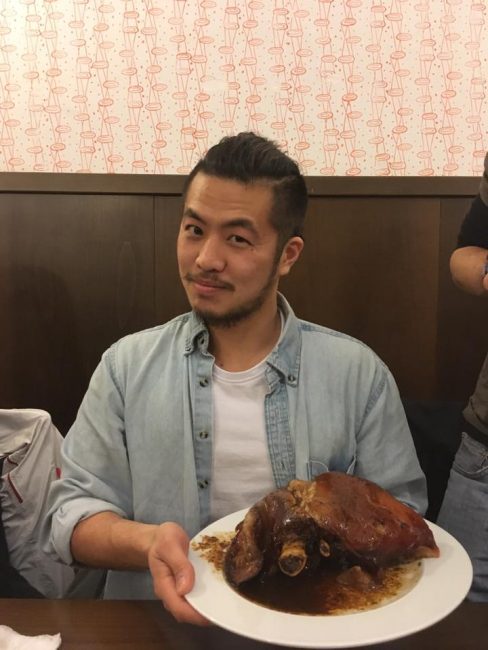




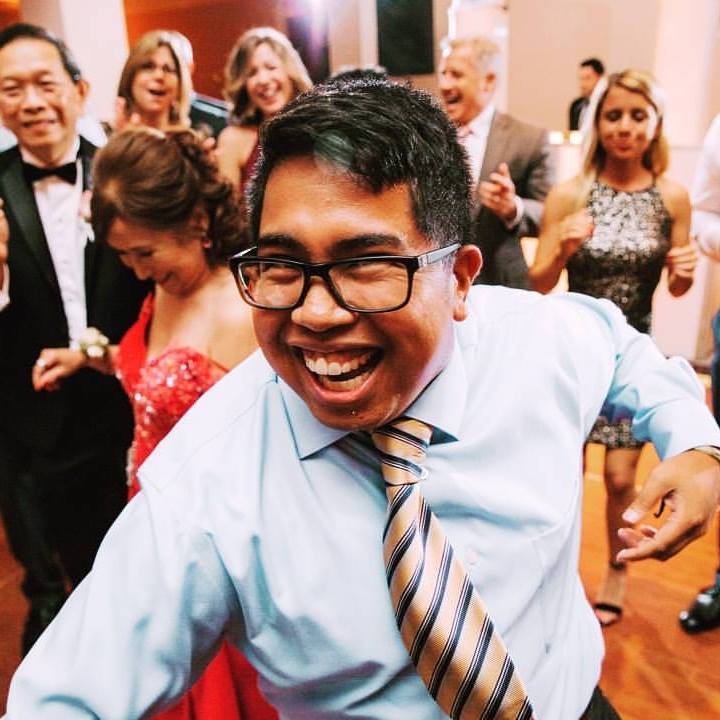
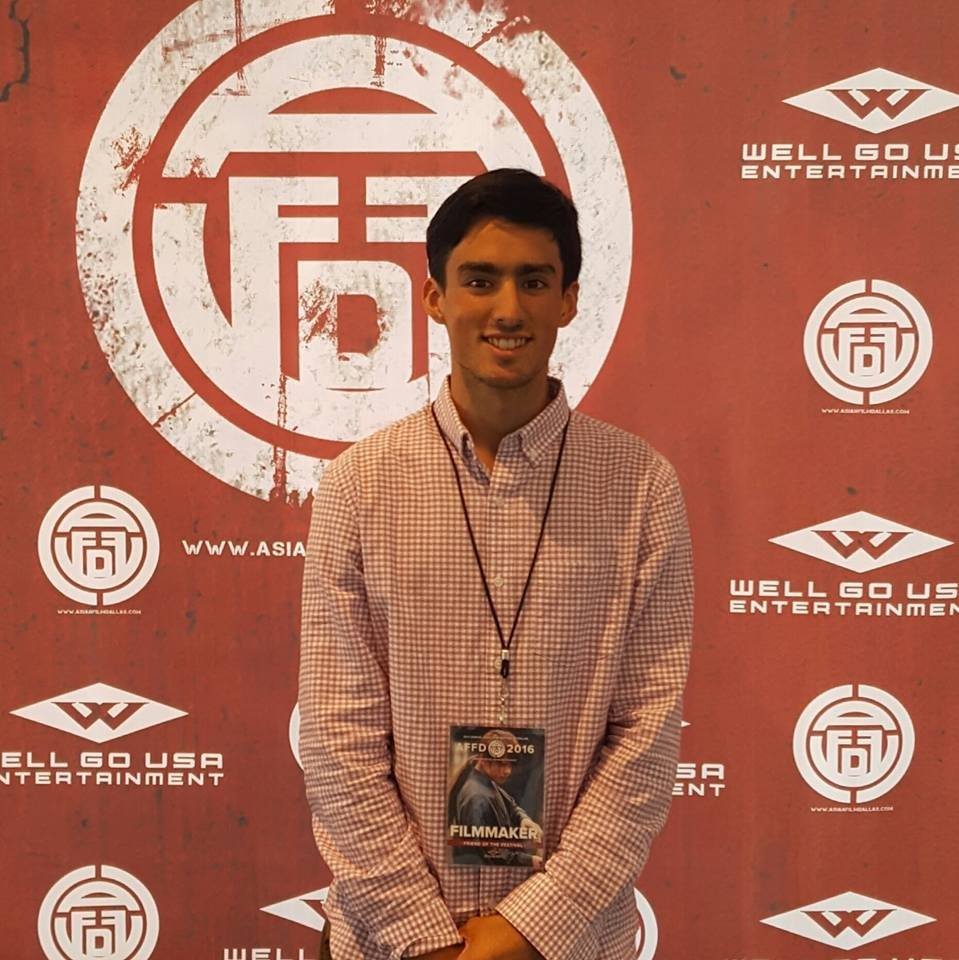

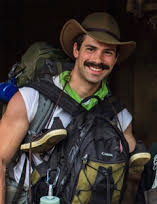 Chris Bellizzi is a photographer, filmmaker, and survival-based cocktail craftsman. A perpetual fan of road trips and window seats, he recently embarked on a nine-month journey across thirteen countries capturing an episodic documentary on candid cultural perception. Back now in the great state of New Jersey editing this project, Chris is looking forward to making new connections and finding new perspectives to keep the creative juices flowing.
Chris Bellizzi is a photographer, filmmaker, and survival-based cocktail craftsman. A perpetual fan of road trips and window seats, he recently embarked on a nine-month journey across thirteen countries capturing an episodic documentary on candid cultural perception. Back now in the great state of New Jersey editing this project, Chris is looking forward to making new connections and finding new perspectives to keep the creative juices flowing.

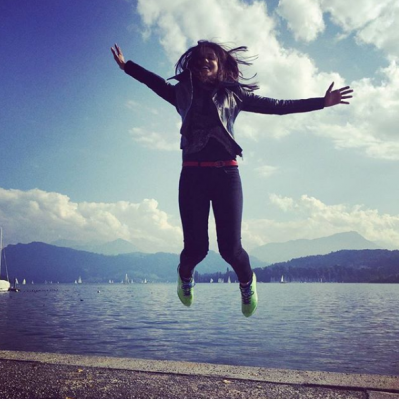




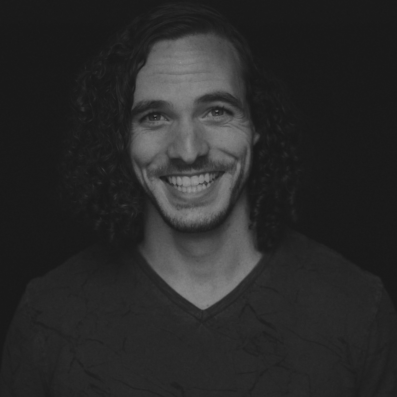









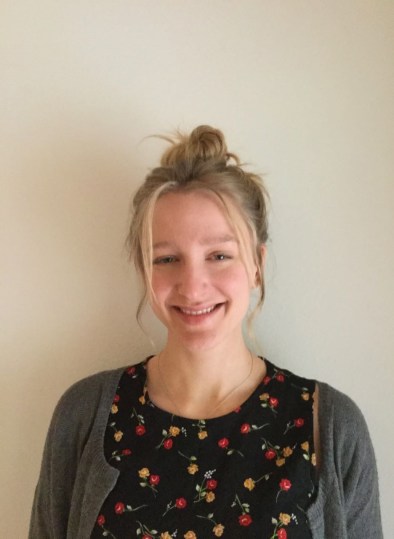











 Stephen is a South African / British Engineer, passionate about new ideas and innovations. He enjoys any kind of adventure sports and the outdoors. Since 2016, he has been pursuing the goal to bring empty houses back into use, thus, bringing life back to communities, as the
Stephen is a South African / British Engineer, passionate about new ideas and innovations. He enjoys any kind of adventure sports and the outdoors. Since 2016, he has been pursuing the goal to bring empty houses back into use, thus, bringing life back to communities, as the 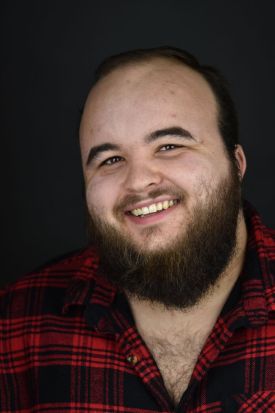 Sean Pollock is a multi-disciplinary writer, director, designer, and artist. Recent credits include: American Juggalo (Porterspace Residency/Vital Joint/The New Ohio) A Very…Scientology Pageant: In Concert (The Green Room 42 & 54Below), Laundryfest, The Bed Show, Super Short Site Specific Festival, Phantom of the Paradise (Secret Loft), Intimate Bar Plays, #serials (The Flea), I’m Smiling Because I’m Uncomfortable (NYC and Touring. Winner: “Outstanding Site-Specific Performance” San Diego Fringe 2018). Off-Broadway: Trump Rally (United Solo/Theatre Row). He currently serves as the Literary Associate for The Dirty Blondes and is a company member of Unattended Baggage. Training: Ithaca College, NTI, Directors Lab North, Directors Lab Chicago, Directors Lab West.
Sean Pollock is a multi-disciplinary writer, director, designer, and artist. Recent credits include: American Juggalo (Porterspace Residency/Vital Joint/The New Ohio) A Very…Scientology Pageant: In Concert (The Green Room 42 & 54Below), Laundryfest, The Bed Show, Super Short Site Specific Festival, Phantom of the Paradise (Secret Loft), Intimate Bar Plays, #serials (The Flea), I’m Smiling Because I’m Uncomfortable (NYC and Touring. Winner: “Outstanding Site-Specific Performance” San Diego Fringe 2018). Off-Broadway: Trump Rally (United Solo/Theatre Row). He currently serves as the Literary Associate for The Dirty Blondes and is a company member of Unattended Baggage. Training: Ithaca College, NTI, Directors Lab North, Directors Lab Chicago, Directors Lab West. 


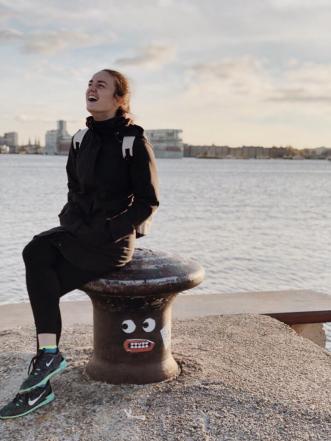


 “Hi. My name is Patrick Higgins and I am the founder and President of
“Hi. My name is Patrick Higgins and I am the founder and President of 







 Anonymous: For our post titled “Caracas in Crisis” we conducted an interview with a young woman who chose to remain anonymous. She is a student living through the political turmoil that has drastically altered everyday life for the people of Venezuela.
Anonymous: For our post titled “Caracas in Crisis” we conducted an interview with a young woman who chose to remain anonymous. She is a student living through the political turmoil that has drastically altered everyday life for the people of Venezuela. Arianna Soldati: is a Volcanologist and Science Communicator. Originally from Italy, she is currently based in Munich, Germany, but will happily go wherever her unusual career may bring her in the future. She only enjoys hiking “mountains” that have a crater on the top, and she will never tire to talk about them.
Arianna Soldati: is a Volcanologist and Science Communicator. Originally from Italy, she is currently based in Munich, Germany, but will happily go wherever her unusual career may bring her in the future. She only enjoys hiking “mountains” that have a crater on the top, and she will never tire to talk about them. Alexander Watson: As a forest investment expert and a manager of several sustainable reforestation projects in Latin America and South East Asia, Alexander has a broad experience in implementing and promoting international forestry projects. To his academic merit, he holds a Bachelor in Forestry from the Technical University of Dresden in Germany and a Postgraduate Certificate in Social Banking and Social Finance from the University of Plymouth in the United Kingdom.
Alexander Watson: As a forest investment expert and a manager of several sustainable reforestation projects in Latin America and South East Asia, Alexander has a broad experience in implementing and promoting international forestry projects. To his academic merit, he holds a Bachelor in Forestry from the Technical University of Dresden in Germany and a Postgraduate Certificate in Social Banking and Social Finance from the University of Plymouth in the United Kingdom. Morgan Randall: Morgan is an American data scientist working in a small town outside of Munich. He enjoys learning about the world through drawing the strangers around him with both his hands.
Morgan Randall: Morgan is an American data scientist working in a small town outside of Munich. He enjoys learning about the world through drawing the strangers around him with both his hands. Health Us Nepal:We are a small spanish NGO acting in Nepal. We provide health to Humla, the remotest and poorest region in Nepal. We can do that thanks to the heart of Marc, our doctor. He was adopted by a catalan family, and after he finished medicine studies, he decided to go back to his origins and start the project of his life.
Health Us Nepal:We are a small spanish NGO acting in Nepal. We provide health to Humla, the remotest and poorest region in Nepal. We can do that thanks to the heart of Marc, our doctor. He was adopted by a catalan family, and after he finished medicine studies, he decided to go back to his origins and start the project of his life. Mandy Ho:Mandy is from Germany, Hong Kong, and Vietnam. A Third Culture Kid, she is currently living in Amsterdam, the Netherlands, but who knows how long it'll be until her next adventure. When she's not raising awareness about gender equality, climate crisis, and mental health, she loves to get out of her comfort zone and experience new things such as aerial and bungee dance classes and volunteering at TedX and hopefully the UEFA Euro 2020
Mandy Ho:Mandy is from Germany, Hong Kong, and Vietnam. A Third Culture Kid, she is currently living in Amsterdam, the Netherlands, but who knows how long it'll be until her next adventure. When she's not raising awareness about gender equality, climate crisis, and mental health, she loves to get out of her comfort zone and experience new things such as aerial and bungee dance classes and volunteering at TedX and hopefully the UEFA Euro 2020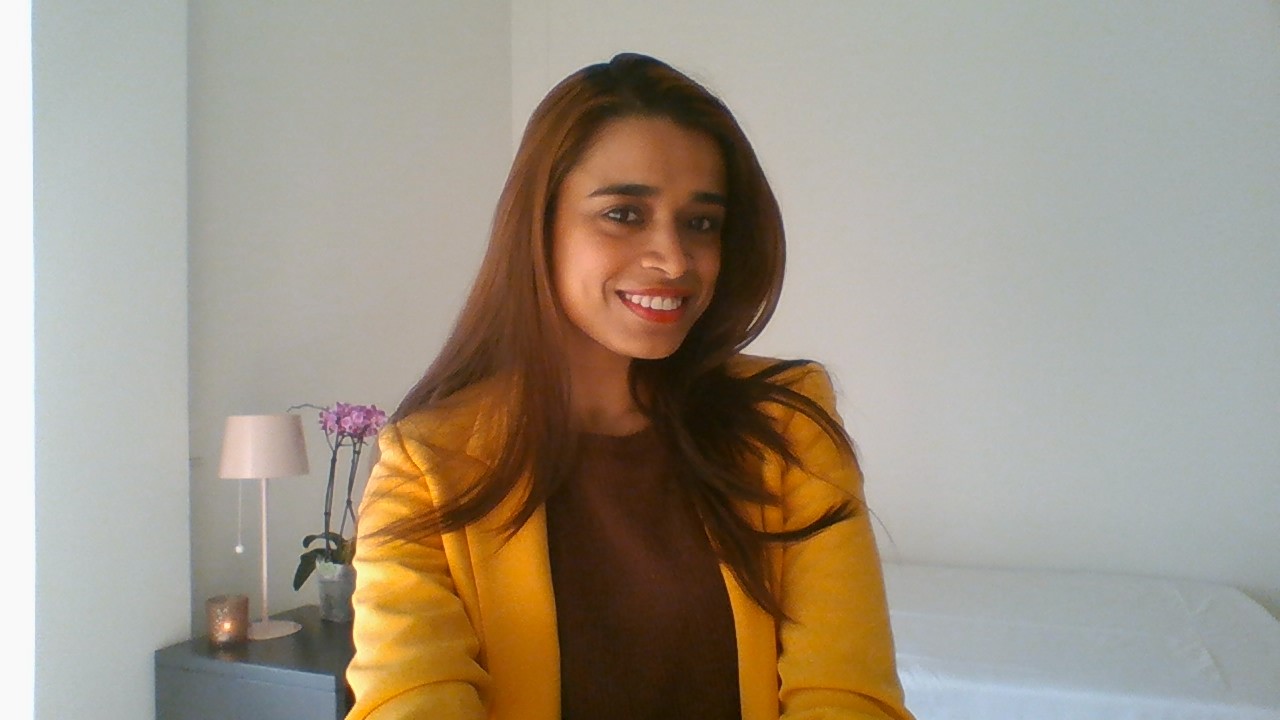 Smita and Earthoholics:I am fascinated by the wonders of nature and find myself on this journey exploring beautiful minds, interesting cities, cultures and people.
Smita and Earthoholics:I am fascinated by the wonders of nature and find myself on this journey exploring beautiful minds, interesting cities, cultures and people. WeBuilding is a Berlin-based non-profit organization founded by an international group of architects, united by a common purpose: to help deprived communities through sustainable building projects. We serve as the support for the local NGOs, helping them to further develop their own projects. With our architectural background, we believe we can provide valuable technical expertise so that both the construction and the design can be done as efficiently as possible.
WeBuilding is a Berlin-based non-profit organization founded by an international group of architects, united by a common purpose: to help deprived communities through sustainable building projects. We serve as the support for the local NGOs, helping them to further develop their own projects. With our architectural background, we believe we can provide valuable technical expertise so that both the construction and the design can be done as efficiently as possible. gaia-liNc is a german-based organization formed by Latin-American and European members committed with the sustainable development of Latin America’s communities and their territories.
gaia-liNc is a german-based organization formed by Latin-American and European members committed with the sustainable development of Latin America’s communities and their territories. Erin Skoczylas is an American photojournalist and communications specialist living in Berlin Germany. Since her start in photography in 2013, Erin has covered socio-environmental topics and issues in areas such as the Brazilian Pantanal, the Peruvian Amazon, and an immigration crisis in Central America. She is currently in her masters of International Relations and Cultural Diplomacy to explore the role of communications between stakeholders to encourage environmental policy. You can see more of her work at
Erin Skoczylas is an American photojournalist and communications specialist living in Berlin Germany. Since her start in photography in 2013, Erin has covered socio-environmental topics and issues in areas such as the Brazilian Pantanal, the Peruvian Amazon, and an immigration crisis in Central America. She is currently in her masters of International Relations and Cultural Diplomacy to explore the role of communications between stakeholders to encourage environmental policy. You can see more of her work at  Silicon Drinkabout is a free weekly event that brings people from the startup scene in Munich together. News, updates and events around Silicon Drinkabout Munich
Silicon Drinkabout is a free weekly event that brings people from the startup scene in Munich together. News, updates and events around Silicon Drinkabout Munich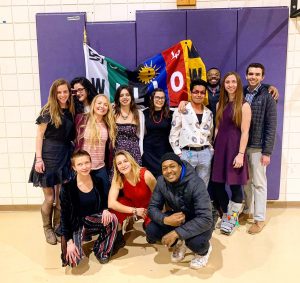 Eagle Rock School and Professional Development Center is a full-service not-for-profit educational reform organization. Eagle Rock operates a tuition-free, year-round residential high school in Estes Park, Colorado, and provides professional development services at school and community sites around the United States.
Eagle Rock School and Professional Development Center is a full-service not-for-profit educational reform organization. Eagle Rock operates a tuition-free, year-round residential high school in Estes Park, Colorado, and provides professional development services at school and community sites around the United States. Kartiki Gonsalves was born and raised in India, She documents our natural world to better understand the profound connection that we share with it by bringing awareness to the challenges we face, but also focuses on solutions with her projects and shows success stories where conservation is working. Her ultimate goal is to create a lifetime body of beautiful work that has deep meaning and that carries a message of hope for preserving what we have which will make a difference for the generations to come. She is currently working on a nature documentary in southern India on the bond between an orphaned baby elephant and his human caregivers. Kartiki is also deeply in love with Orcas and enjoys kayaking.
Kartiki Gonsalves was born and raised in India, She documents our natural world to better understand the profound connection that we share with it by bringing awareness to the challenges we face, but also focuses on solutions with her projects and shows success stories where conservation is working. Her ultimate goal is to create a lifetime body of beautiful work that has deep meaning and that carries a message of hope for preserving what we have which will make a difference for the generations to come. She is currently working on a nature documentary in southern India on the bond between an orphaned baby elephant and his human caregivers. Kartiki is also deeply in love with Orcas and enjoys kayaking. Melissa Angel is an environmental communicator working at the Global Landscapes Forum. She is also an avid banjo player and mom to a dog named Morby!
Melissa Angel is an environmental communicator working at the Global Landscapes Forum. She is also an avid banjo player and mom to a dog named Morby!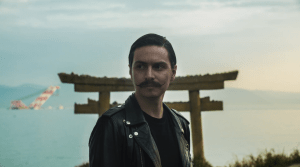 Felipe Guarin is a creative executive living in Tokyo, Japan, with strong branding and marketing experience and a passion for technology, design and applied creativity complemented with a successful start-up experience. He studied Political Science at the Externado University in Bogotaì and later did a Masters in Marketing at the Pompeu Fabra in Barcelona and a Master in media design at Keio University in Tokyo. He is a Colombian experiential designer and entrepreneur who started working as a creative for BBDO. His experience at BBDO gave him enough confidence led him to start his design studio called Whatever Works. The studio has quickly become a hub for brands looking for a novel way to connect with their consumers. Some clients include Discovery Chanel, Jack Daniel’s, and Netflix. Felipe has been researching over the last 3 years the relation between games, sports, and technology he started in the field intuitively and ended co-founding Kinix a video game studio based in Japan that aims to dissolve the line between sports and e-sports.
Felipe Guarin is a creative executive living in Tokyo, Japan, with strong branding and marketing experience and a passion for technology, design and applied creativity complemented with a successful start-up experience. He studied Political Science at the Externado University in Bogotaì and later did a Masters in Marketing at the Pompeu Fabra in Barcelona and a Master in media design at Keio University in Tokyo. He is a Colombian experiential designer and entrepreneur who started working as a creative for BBDO. His experience at BBDO gave him enough confidence led him to start his design studio called Whatever Works. The studio has quickly become a hub for brands looking for a novel way to connect with their consumers. Some clients include Discovery Chanel, Jack Daniel’s, and Netflix. Felipe has been researching over the last 3 years the relation between games, sports, and technology he started in the field intuitively and ended co-founding Kinix a video game studio based in Japan that aims to dissolve the line between sports and e-sports. Lakshika Serasinhe is a cinematographer and director from Galway, Ireland.
Lakshika Serasinhe is a cinematographer and director from Galway, Ireland.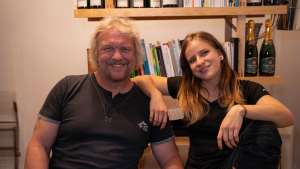 PowerPlay is an approach to fitness which incorporates a playful and experimental mindset. Fozzy (aka Prof. Dr. Eckehard Moritz) heads the innovation consultancy Innovationsmanufaktur in Munich and Raluca Muntean is a designer and acrobat also living in Munich. View the recent work from Powerplay here:
PowerPlay is an approach to fitness which incorporates a playful and experimental mindset. Fozzy (aka Prof. Dr. Eckehard Moritz) heads the innovation consultancy Innovationsmanufaktur in Munich and Raluca Muntean is a designer and acrobat also living in Munich. View the recent work from Powerplay here:  Petra is a Global Marketing professional and dance company founder based in Jersey City, NJ. She balances her love of Excel spreadsheets with her passion for contemporary choreography, all while cuddling her two cats, Basil & Poppy.
Petra is a Global Marketing professional and dance company founder based in Jersey City, NJ. She balances her love of Excel spreadsheets with her passion for contemporary choreography, all while cuddling her two cats, Basil & Poppy. Sara: “Hi everyone, I’m Sara and I am an American living in Germany. On my youtube channel,
Sara: “Hi everyone, I’m Sara and I am an American living in Germany. On my youtube channel,  Poonam is born, raised, and educated in New Jersey, and she currently lives and works in Brooklyn. She is a curriculum development manager at a leading edtech company; outside of her corporate 9am-5pm, Poonam runs a very small business that sells authentic masala chai kits inspired by her mum’s top secret recipe. Check out @
Poonam is born, raised, and educated in New Jersey, and she currently lives and works in Brooklyn. She is a curriculum development manager at a leading edtech company; outside of her corporate 9am-5pm, Poonam runs a very small business that sells authentic masala chai kits inspired by her mum’s top secret recipe. Check out @ Trevor May is a cinematographer and filmmaker from Atlanta, GA. His focus is primarily on documentary storytelling but has worked in narrative, commerical and music videos as well.
Trevor May is a cinematographer and filmmaker from Atlanta, GA. His focus is primarily on documentary storytelling but has worked in narrative, commerical and music videos as well.
One Comment Add yours